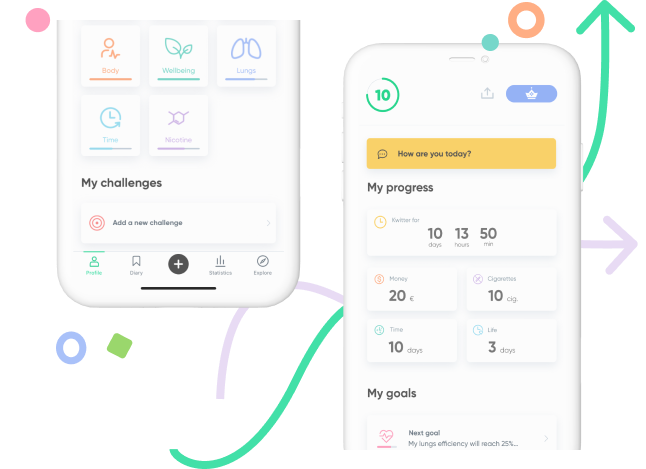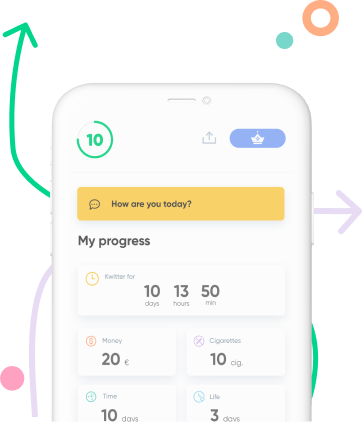December 2, 2020
Personal Development
Expressing gratitude to feel better
Expressing gratitude has a lot of proven benefits. Kwit gives you some tips to integrate gratitude into your daily life in order to improve your well-being.
Expressing gratitude helps us feel emotions that we believe are more positive, savour our good experiences, improve our health, cope with adversity and build strong relationships. In a nutshell: gratitude helps us feel better. In this article, Kwit helps you understand what gratitude is, what its benefits are, and gives you tips on how to express your gratitude on a daily basis.
Define gratitude to better express it
Gratitude refers to a general state of appreciation that, according to many studies, is associated with a general sense of well-being.
Robert Emmons, perhaps the world's foremost scientific expert on the subject, believes that gratitude has two key components:
"First, it’s an affirmation of goodness. We affirm that there are good things in the world, gifts and benefits we’ve received."
"We recognize that the sources of this goodness are outside of ourselves. … We acknowledge that other people gave us many gifts, big and small, to help us achieve the goodness in our lives."
Emmons, like many other scholars, considers the social dimension to be particularly important when it comes to gratitude. According to him, it is "an emotion that strengthens relationships", "because it forces us to see how we have been supported and affirmed by others".
Research on the benefits of gratitude
Two psychologists, Dr Emmons from the University of California and Dr. Michael E. McCullough from the University of Miami, have shown that expressing gratitude can have a significant impact on the well-being of some individuals.
Tennen and Afflek found that when people face trauma, if they are able to feel gratitude, then they are able to overcome that adversity and be more resilient.
According to a 2011 study published in Applied Psychology: Health and Well-Being, grateful people sleep better.
Other research has shown that gratitude has other benefits in addition to improved overall well-being: more generosity and fewer depressive symptoms and less stress.
The benefits of gratitude are many, and we all have the ability and opportunity to express it. Let's just take a few moments to focus on everything we have. Let's not forget that expressing gratitude and being grateful is one of the simplest ways to improve our well-being.
Nevertheless, it is important to add a caveat: some studies have shown that gratitude doesn’t act in the same way on all individuals and that it cannot make injustice, loss or pain disappear.
What gratitude can do, however, is give us hope. Research shows that focusing on the positive, instead of focusing only on the negative, can boost our optimism.

How to express gratitude to feel better?
Gratitude is a way for everyone to appreciate what they have. It helps us focus on the positive instead of focusing on what we are missing. Although expressing gratitude may seem artificial and even futile, it is about developing a mental state of optimism that is gradually reinforced with use and practice.
Here are some simple and effective ways to cultivate this state of mind, proposed by Bono. G, McCullough. M, two researchers in psychology:
Express your gratitude in writing: thank someone you know for the positive impact they can have on your life. Send this letter, or better yet, give it to them and read it. Make a habit of sending at least one thank-you letter a month. Remember that you can also be the recipient of this letter.
Thank someone mentally: you don't have time to write? Take 2 minutes and think of someone who has done something for you. Thank them mentally.
Keep a gratitude journal: get into the habit of writing a paragraph each day (longer or shorter depending on how much time you have) to express your gratitude. Take the time you need to calmly explain why you are grateful for and what it means to you. If necessary, close your eyes and think about how it felt when something good happened to you. Then describe it.
Meditate: Mindfulness meditation involves focusing on the present moment without judgment. During this meditation, focus on what you are thankful for (the warmth of the sun, a pleasant sound, good news, etc.).
Say thank you !




